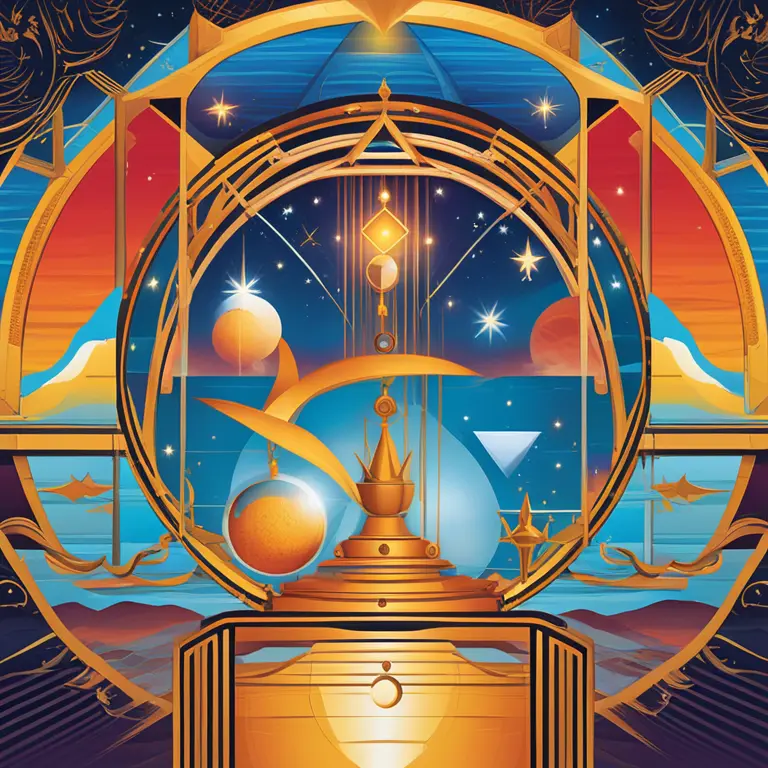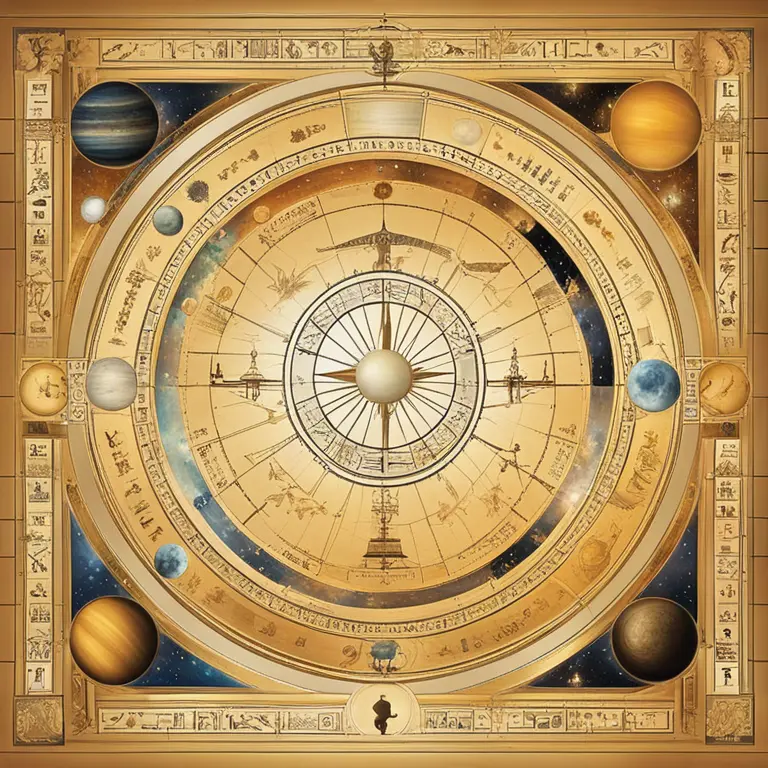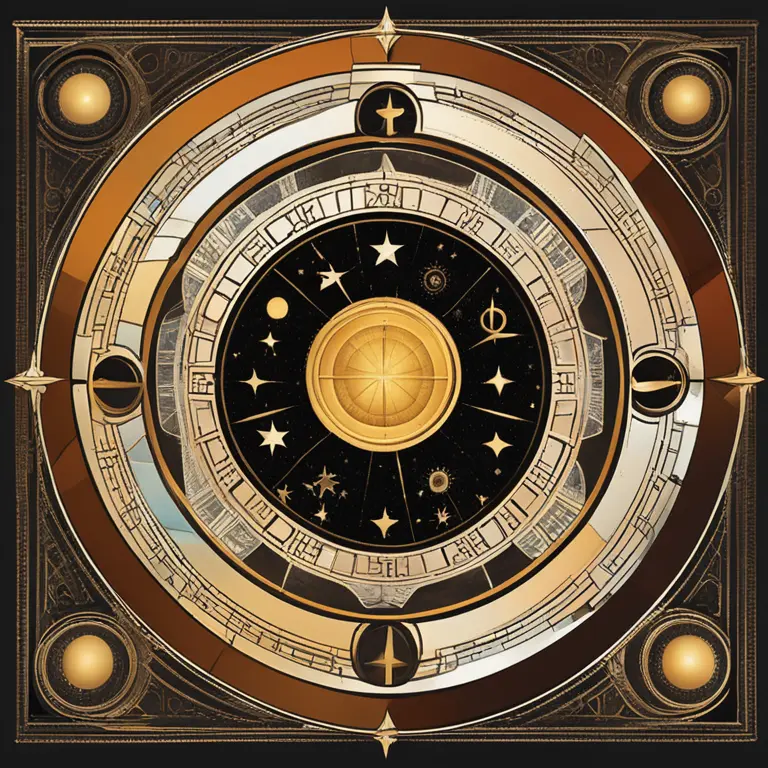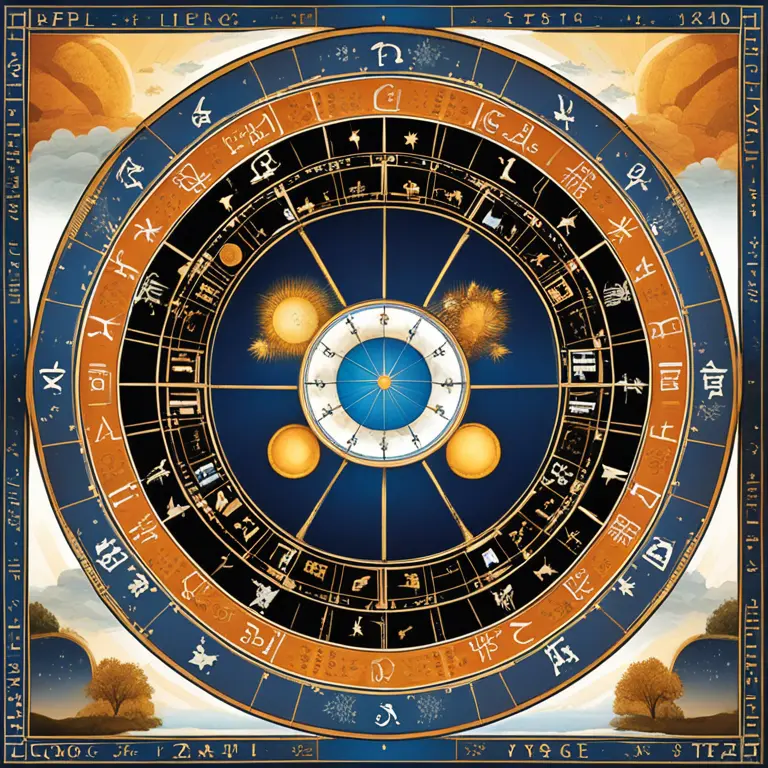
The Zodiac's Journey Through Time
Delve into the historical tapestry of the zodiac, tracing its origins, significance, and evolution across civilizations.
article by Priya Deshmukh
The Dawn of Astrology
The celestial dance of the stars and planets has fascinated humanity since the dawn of time. Ancient civilizations looked up to the night sky, seeking to understand the patterns and movements of the cosmic bodies. This fascination gave birth to astrology, a discipline that intertwines the human experience with the positions of celestial entities. Archaeological findings suggest that the practice of astrology dates back thousands of years, with ancient Babylonians often credited as the pioneers. Their meticulous sky observations laid the groundwork for what would become the zodiac system we know today.

The Zodiac Wheel
The word zodiac is derived from the Greek term 'zodiakos kyklos' meaning "circle of animals," a fitting description for the twelve distinct constellations that comprise the system. Each constellation corresponds to a segment of the sky divided along the ecliptic—the apparent path of the Sun from Earth's perspective. The Babylonians identified these constellations and linked them to seasons and agricultural cycles, creating a calendar that would ultimately shape the way humans perceive time and destiny.

Greek and Roman Contributions
As the torch of knowledge passed from the Babylonians to the Greeks, astrology evolved. The Greeks refined the zodiac, imbuing it with mythological significance and connecting it with their pantheon of gods. Following the Greeks, the Romans adapted the zodiac, renaming the constellations with Latin names that we still use today: Aries, Taurus, Gemini, and so on. These names, shrouded in myth and legend, acted as vessels for the collective stories and beliefs that narrate the human condition.

The Astrological Ages
Intertwined with astrology is the concept of astrological ages, expansive time periods ruled by each zodiac sign spanning roughly 2,160 years. These ages correspond with the precession of the equinoxes, marking shifts in Earth's rotational axis that alter the celestial backdrop for equinoxes. Many believe we are currently transitioning from the Age of Pisces into the Age of Aquarius, rumored to bring forth an era of enlightenment and technological advancement as it unfurls beyond 2024.

The Zodiac in Modern Times
Today, western astrology remains largely Hellenistic, though it has embraced influences from various cultures over the millennia. As we look toward the forecast for 2024 and beyond, horoscopes reflecting the movements of celestial bodies such as Jupiter and Saturn into new constellations promise to bring changes in society and personal growth. Astrologers interpret these movements, offering wisdom that echoes the ancients yet resonates with the modern seeker.
Science and Spirituality Intersect
While astrology and the zodiac are often viewed with skepticism by the scientific community, their cultural impact is undeniable. The continued popularity of astrological forecasts and the zodiac symbols reflect humanity's enduring search for meaning and guidance. As we forge ahead into the future, the zodiac system remains a testament to our ancestors' desire to understand life's rhythms through the stars above.
Published: 2/5/2024
Modified: 2/5/2024
More predictions
Come back here soon to learn more about yourself and your future


The Mystery of 5 Empty Houses in Astrology
Discover the significance of empty houses in your astrological chart and what they reveal about your life journey and potential.


Astrology's Architecture: Houses and Ruling Planets
Delve into the heart of astrology through the foundational concepts of houses and their ruling planets, a guide to the cosmic infrastructure influencing our lives.


The Role of Dominant Houses in Astrology
Discover the influence of dominant houses in your astrological chart and how they shape your life experiences and character traits.